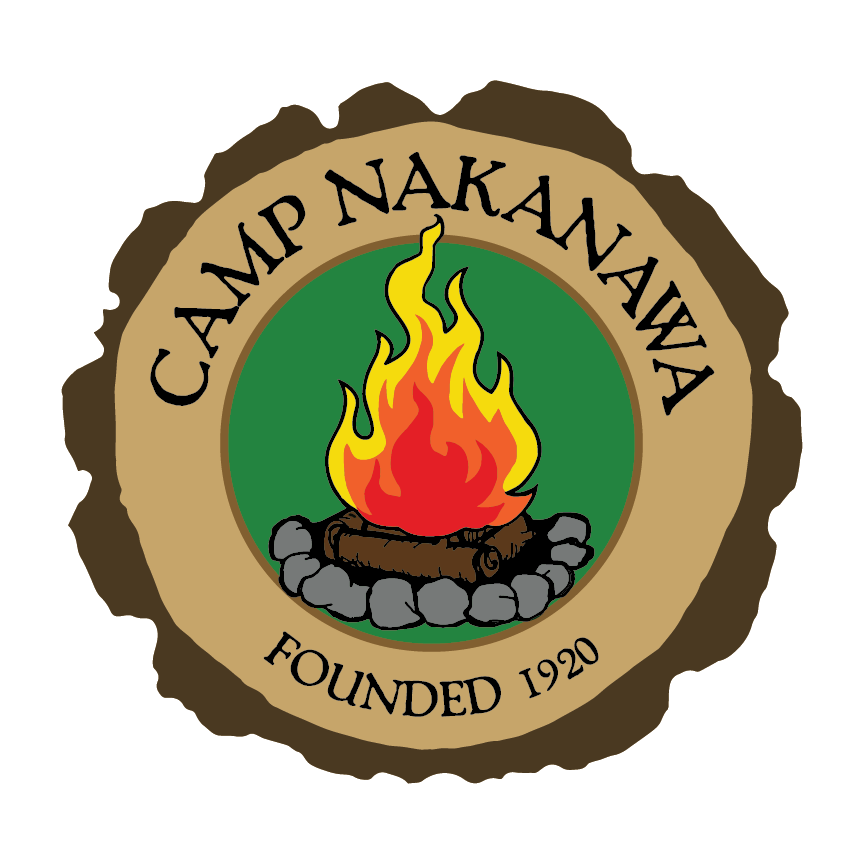

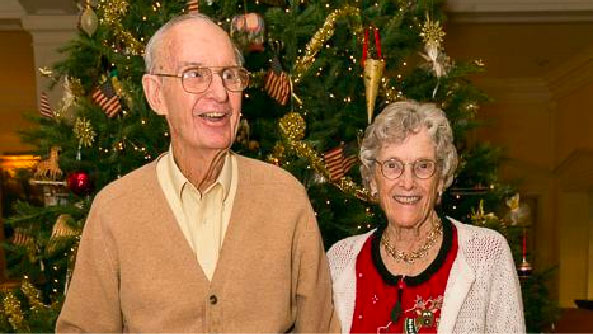
Deanie Boteler – In Memoriam
Deanie Boteler – In Memoriam
Page Hart Boteler (Age 92) died peacefully at her home in Gaithersburg MD on December 22, 2019. Page was preceded in death by her husband, Charles M. Boteler, Jr. in 2016, and her daughter, Louise C. Boteler in 1994. She is survived by three children: Alice Layman of Charlottesville, VA (Steve), Lindsey Boteler of Gaithersburg, MD (Jan) and Laura Boteler Butchko of Annandale, VA (Jerry); four granddaughters, Laura Layman Lazarevich (Pete), Martha Layman McKechnie (Jason). Lindsey Butchko and Christina Butchko, one grandson, Jason Boteler (Elizabeth) and five great-grandchildren; Carson Lazarevich, Claire Lazarevich, William Boteler, Aidan Boteler, and Louise McKechnie.
A native Nashvillian, Page moved to the DC area after graduating from Bryn Mawr College in PA where she met and married Chuck Boteler in 1949. A mother of four children, bookkeeper for the family insurance business, and 67-year marriage were her top priorities. Because of her exceptional organizational skills, she was able to make time to pursue her passion for community work. Page became an active supporter and volunteer for several non-profits including, the Junior League of Washington where she achieved Sustainer Emeriti, the Washington Historical Society, the Questers Preservation and Restoration, and St. Mark Presbyterian Church where she was a longtime member. Her refined southern charm, kindness and generosity, touched the lives of everyone who had the pleasure of knowing her.
A Celebration of Life will be held on January 25, 2020 at 11 a.m. at Guild Memorial Chapel at Asbury Methodist Village, 211 Russell Road, Gaithersburg, MD 20877 (for directions please visit http://www.asburymethodistvillage.org/). A private inurnment will take place at St. Mark Presbyterian Church in Rockville, MD. In lieu of flowers, memorial donations may be made to St Mark’s Memorial Garden fund (https://saintmarkpresby.org/) or Bryn Mawr College (https://www.brynmawr.edu/).
Published in The Washington Post on Dec. 24, 2019
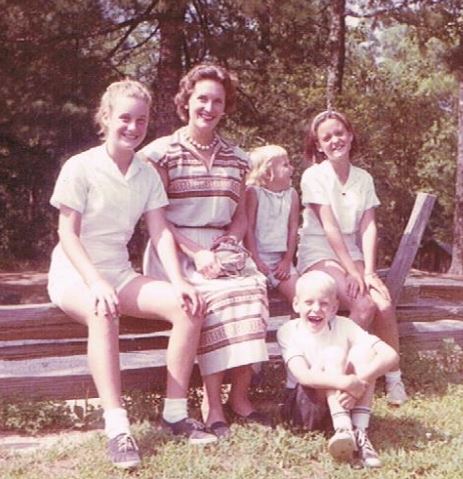
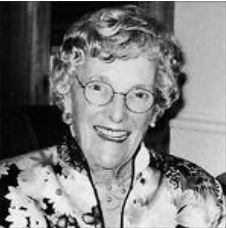
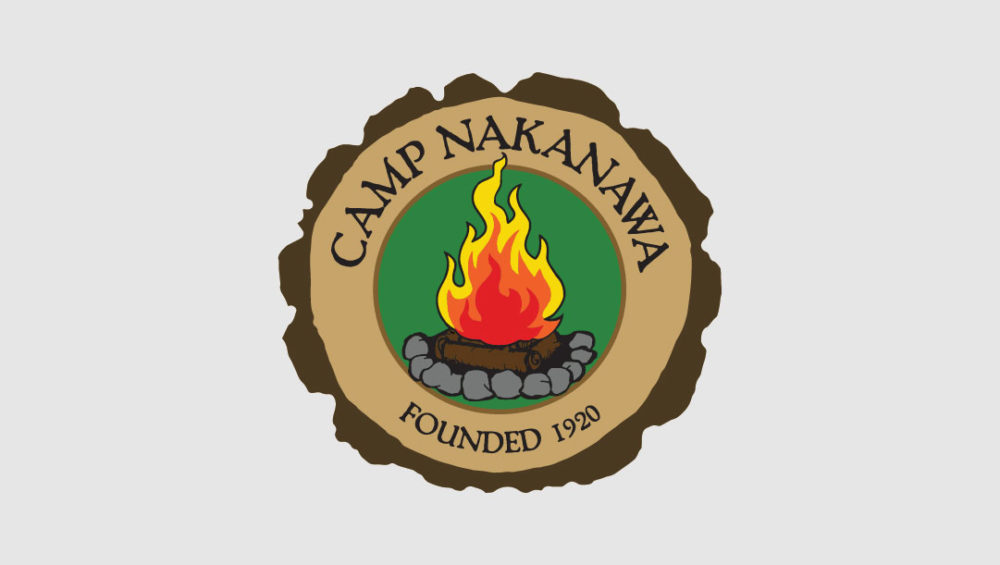
Pre-Camp Counselor Check-List
WELCOME 2021 COUNSELORS!
Please complete every item on your Counselor Checklist prior to arriving at Camp Nakanawa. We look forward to a wonderful summer together!
REGISTER AND COMPLETE THESE ITEMS:
- SELECT YOUR COMMITTEES AND ACTIVITIES
- EMERGENCY INFORMATION FORM
- ELIGIBILITY FORM AND TAX FORM
- MEDICAL FORM 2021 – MUST BE SIGNED BY A DOCTOR
- PLEASE READ YOUR 2021-COUNSELOR-TRAINING-MANUAL
THE MANUAL COVERS A LOT OF IMPORTANT INFORMATION PLEASE BE SURE TO MAKE TIME TO READ THIS BEFORE PRE-CAMP 🙂
Pre-Order your 2021 Staff T-Shirt (Optional!)
Every counselor will receive one free white staff shirt upon arrival at Camp Nakanawa. This is a different t-shirt – designed by our counselors – that is available for you to purchase. Again, this is not mandatory, just a fun option you may want to think about. The shirts will be shipped to camp and given to you there. THANK YOU MARGARET MATENS for the wonderful artwork that you created! Please place order by June 7th.
Click Here to Order a Short Sleeve Staff T-Shirt
Click Here to Order a Long Sleeve Staff T-Shirt
*READ EACH OF THE FOLLOWING TUTORIALS:
- Meet Ann Perron
- Pepe says hello!
- Meet Annette Hall
- Meet Karen Barlow Parrish
- Meet Your Head Counselors
- A brief history of Camp Nakanawa
- How to be a great role model
- Child development and Camp
- Counselors as teachers
- Our Focus is the campers
- Devotions and bonding with your cabin
- Cabin life tips
- Homesickness
- What to expect as a brand new counselor
- Transitioning from Camper to counselor: please watch this 20 minute video prior to camp!
- Rest Hour Etiquette
- Extras that you may want to bring to camp…
- Social Media & Going Unplugged
- The new “reality” for girls
- Taking care of YOU!
AND NOW, A FEW MORE COUNSELORS HAVE SOME ADVICE TO SHARE…GET TO KNOW THEM ALL!
Margaret Leatherbury – We wear many hats
Caroline Harris – Life as a Counselor
Mop’s 30 Plus Summers
Casey’s Life of Adventure
Tiny tells about Nakanawa legacies
Val is ever returning

Bullying – Things to Watch For
Bullying - Things to Watch For
We all think of schools as the place where “bullying” is discussed and addressed. But what better place to reinforce and deal with this topic, than at camp. Here at Nakanawa, we always pride ourselves in the ideal “Nakanawa girl.” Basically, girls are usually on their best behavior at camp. I said usually….but not always. And what about outside of camp? Cyberbullying definately can take place outside of the hallowed shores of Lake Aloaloa.
The Anti-Bullying Policy of camp can be found on the Nakanawa website. Here is an exerpt of the policy:
Our camp philosophy, which dates back to its founding in 1920, is based upon the ideals of friendship, love, honor, and truth. At Nakanawa, we strive to ensure that all young women gain self-confidence, make new friends, leave with cherished memories and friendships that last a lifetime. Bullying, in all of its forms is not tolerated, and stands counter to Nakanawa’s fundamental goals.
So how can we as counselors help our campers meet the ideals of Nakanawa, without bullying while at camp or away? This tip sheet, created by the American Camping Association, gives some good advice on how to spot the behavior and deal with it.
And talking with your campers helps to reinforce your views toward this behavior. (Your campers look up to you and want to follow your lead. So you can set the tone on this.) Cyberbullying (which is not a behavior we will see at camp) is growing because it its easy. The trend for girls to communicate face-to-face and over the telephone is getting less and less. This is especially true at Nakanawa since our campers are spread out over the U.S. and the world! But it is very easy to hurt someone and be indirect through texting. In this case, you don’t see the reaction to the bullying and the consequences of your action are not immediately visible. The cyberbully can be bold, brash, and very mean with her insults or conversations. It can also be done anonymously. This is a recipe for an ugly, growing problem, that even Nakanawa is not immune to. So yes… we will try to address this through our cabin meetings whenever possible.
We will work to create empathy and understanding with our campers. You will help lead devotions and discussions around these topics. I especially love a program called Bullies2buddies, which is used in the school where I work. This article about the Golden Rule, is pretty telling. During pre-camp, we will help you come up with some strategies on how to help girls come face-to-face with each other, so that the bully and her buddy can come together.
Thanks for listening!
Shelly
ps – Don’t read this attached article unless you are really interested in the subject of bullying, as it is quite long. This is a paper I wrote for one of my education classes.

The New Reality for Girls
The New Reality for Girls
One of the easiest and most difficult, best and worst aspects of Camp Nakanawa is that it is a place that is all about girls. It is a place that girls can be themselves, away from the influences that exist in their everyday lives. It is a place that we can ALL get away from those petty, yet grueling pressures of the real world.
Imagine a place ……where girls can really be themselves. Nakanawa is that place. The article (which is summarized at the end of this section) warns us as counselors to be careful about our words and our messages when it comes to body image. One of the long-standing traditions at Nakanawa was the “three bite rule” at meals. (the rule was that every person had to eat at least three bites of every food offered in the dining hall.) Well, based upon research telling us never to make food an “issue” or battle, we have modified that charge. Instead, we suggest that every child try the food. We suggest that three bites is a great way to give it a try. But we don’t hold the camper to this rule. Another “tradition: that we no longer do is the weekly (and somewhat public) weigh-ins at the infirmary. Again, it is placing too much emphasis on the power of food.
So our message to you, our counselors is to be thoughtful in your discussions, and careful in your actions when modeling for young women. They will pick up on (and place importance on) every word you say.
The following section is a summary of key points from a wonderful article in Camping Magazine.
-
You could completely trust every girl sitting with you today . . . for as long as you live.
-
You knew with total certainty that they would never hurt you intentionally.
-
If any of you ever had a problem, you would go to each other directly and resolve the problem.
-
They would never spread rumors about you, and would in fact squash rumors before it became gossip.
-
They would stick up for you.
-
They would always be honest with you.
-
They would never make comments about how fat your rear looks in those white shorts, or anything like that.
-
They would encourage you to be yourself, to take risks, and to accept you unconditionally.
-
Be the role model! You need to live and demonstrate this new reality every day. It takes time. You need to teach them how to communicate positively. You need to remind your bunkies that they have a choice. And you need to ban any negative comments about each other’s bodies. Yep! You need to intervene each and every time they say something negative about their own bodies. And this includes you, too. Don’t say negatives about your own body!
- Go the distance! You need to be the strong, mature, assertive woman who are willing to intervene [without hesitation] the moment they get off track. Intervene every time something comes up. Be persistent and consistant. It is never OK to be hurtful to another girl or to be negative toward ourselves.
-
Empower girls! Point out the great things that are working. Encourage the older girls to support the younger girls. Make this your culture. Focus on the positives.
You will be amazed at this new “reality” that you can help create for young girls. It can combat the societal pulls of the supermodels …..we know …..because we’ve seen it in action year after year.

Child Development
Child Development
The most important “job” you will have as a Nakanawa counselor is that of cabin counselor. You will be responsible for 8 to 10 girls, acting as big sister, friend, confident, and even “surrogate mom” at times. At Nakanawa, we call the girls in our cabin our “bunkies.” (They sleep in “bunk”…..get it?) These girls look up to you, their counselor, in ways you may never know.
Lucky for us, we know what it feels like to be a young girl, a “tween,” and even a full-fledged teen. We’ve been there ….. done that. So you will probably feel comfortable in your newfound role as cabin counselor.
-
Pay special attention to how campers make mistakes — both in activities and in relationships — because it reveals how they think. Knowing this will help you be a better counselor.
-
Provide opportunities for challenge and exploration. Most growth occurs when campers are faced with new, and even somewhat difficult circumstances. (Do you really think I can become an American Archer?)
-
Encourage effort without putting a premium on winning or perfection. Help campers understand that the process of learning involves more failing than succeeding. Remember to value the process, not the product. Nakanawa is a perfect environment to practice this. Though we celebrate the accomplishments, we value sportsmanlike conduct over everything.
-
Be sensitive to younger camper’s concrete ways of thinking. It takes years to learn to think hypothetically and abstractly. This is one reason why younger children are impulsive and why they take what counselors say so literally.
-
Teach age-appropriate skills. Although it may be trendy to push kids ahead, Piaget cautioned, “Children have real understanding only of that which they invent themselves, and each time that we try to teach them something too quickly, we keep them from reinventing it themselves.” At Nakanawa, we try to let young girls stay “young.”
-
Allow campers to be self-directed in some activities. Like many animals, children can be trained to perform. A nobler goal is to teach them to think for themselves and act responsibly. Some selfdirected play helps nurture children’s independence. And we have noticed that in today’s world, learning this selfdirected play is difficult for girls whose lives have been so orchestrated by their parents.
-
Pair challenge with support. Push campers’ skill limits while exposing them to expert instructors (that’s us!) and peers. This practice promotes proper child and adolescent development.
-
Design an environment where campers experience some mastery, not just constant challenge or constant hollow praise. A genuine sense of accomplishment, after some real effort and failure, is the only thing that increases self-esteem. There is no evidence to suggest that simply telling a child she is special will make her feel special. At Nakanawa, our activities, reinforced by recognitions and clubs help support this genuine sense of accomplishment.
-
In terms of the activity you teach at Nakanawa, make sure you explain the goals of your activity to campers in advance. Then, at the end of some activities, discuss whether and how those goals were met. Play is your most powerful teaching tool.
-
And finally, Nakanawa is a unique utopia where each girl is celebrated for her own individuality. Your support, care, and concern for each camper will help her grow and develop more than you will ever know.

How to be a great Role Model
How to be a great Role Model
You will give campers a “mental map” for their lives in the ways that you
- respond socially and emotionally
- resolve conflicts, both big and small, and
- communicate with those around you.
Ashley, the fun-loving counselor having fun on the giant swing!
Here are some ways to be great Nakanawa role models:
- Set a great example in all that you do and say. Show up on time to flag raising, have positive words to say to all, stick to the camp uniform, and encourage your bunkies to do the same. Notice when they are kind, appropriate, helpful, or fun. Another good example of this is keeping your cabin area clean and tidy. We require it of our campers, which means you need to show them that you believe in it, too.
- Have a positive, fun attitude. Like Ashley up there hamming it up on the giant swing, we counselors have to some times show campers how to have fun. We need to show a positive attitude and energy, even though we may not actually feel like it every time. If we are having fun, the kids will have fun, too. And then if we needed a lift, the contagion will go the other way and we’ll be having genuine fun ourselves. Focus on what you do like, and catch them getting things right.
- Earn their respect. Your bunkies have each other to be their friends, but you are the only one(s) who can be their counselor(s). They count on you to challenge them to be their best selves, set appropriate limits, help them plan ahead, and keep order. Have fun with them, but also remember that if you ever have to choose between earning their friendship and earning their respect, your best choice is to go for their respect.
Think about a person who has been an important role model in your life. Think of the qualities that they have given to you. let’s make it a point to become an important role model to a special camper this summer. I can’t think of a better goal than that, can you?
Camp’s almost here! Let’s get excited!
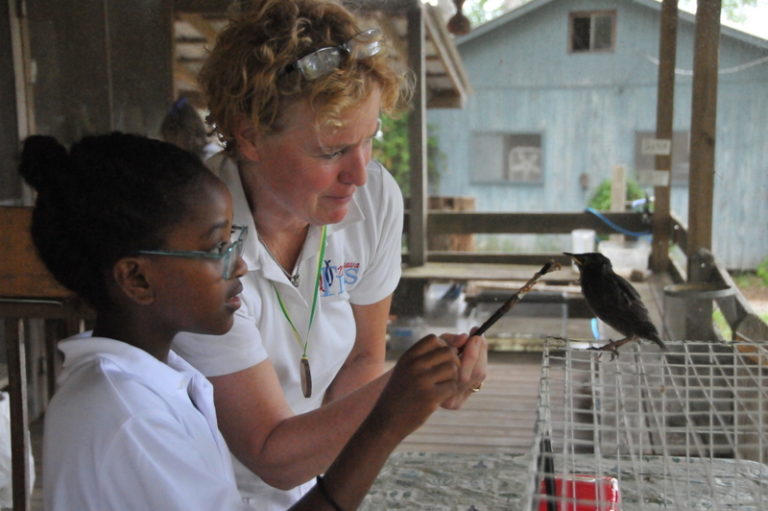
Counselors as Teachers
Counselors as Teachers
There is good information about how camps should set up their counselor staff so that it is a nice blend of college-age women, “working world” teacher counselors, and “older” former campers/counselors who help keep the camp traditions alive. Without realizing that we were trying to have that perfect model….. we have it at Nakanawa!
Just looking at our counselor numbers, here’s how it plays out:
- Many of our counselors are college-age (or just out of college).
- More than 10 percent are teachers as their “real world” jobs.
- Some are in med school, nursing school, or consultants, choosing to take a summer break to be at Nakanawa.
- And many of our counselors are international. We come from all parts ot he country and the world, to work together toward a common goal: The campers.
For those of us in the “mature” category, we joke that we can’t stay away. We keep coming back for more. Though we are no longer acting as cabin counselors, we are supporting the cabin counselors in many ways. We help to lead activities, do behind the scenes work like the dining hall and mail, help out in the cabins with devotions and rest hours.
Working together, with fellow counselors of all ages is one of the special parts of Nakanawa. We look forward to having everyone together soon. Camp will be here before you know.

Camp is about the Campers
Camp is about the Campers
What is Camp Nakanawa all about? The campers, of course.
By Shelly Duer Landau
Hi, everyone….The first time you will learn about the girls in your cabin is the moment you and your co-counselor sit down with Ann and Pepe at the “cabin assignment” meeting during pre-camp. I have had the privilidge to sit through these meetings when head counselor, and I have to admit, it’s magical. It is in this meeting that you will learn about your bunkies, and you will learn what the parents hope and wish for their daughter. You will even learn what their anxieties may be. For instance, a mother may tell us that she is hopeful that her daughter tries new activities….. or shares that her child is a bit anxious about the lake…..or hopes that her daughter learns to be a good friend and get along well with others. These may sound like small, insignificant thoughts and wishes, but they are not. It will be up to you, their counselor, to take what you learn [on paper] and help your bunkie to expand their horizons while at camp.
Here are a few of my personal thoughts to help you keep your campers as your focus this summer:
- Make something special out of camp’s unstructured times…..especially bedtimes.
Any time you are in the cabin with your girls is precious time. Blocks of time like cabin clean up are times that you can interact and get to know them. You are talking with them about the day, helping them to learn to work together, modeling good “clean-up” behavior yourself. Before lunch or before dinner, when the girls are just talking together is another great moment. Free days are another great span of time that you can bond with your cabin. But the best time of the day is nighttime. The effort that you put in at night will pay great dividends in terms of the respect and the closeness they feel with you. Establish a nighttime ritual that makes each girl ready to get to Egypt, get back to her cabin, dressed and ready for bed by second blinks. Share a special devotion time every single night. Make it count! It is through this special time that you will truly discover the magic of camp, and the camper counselor relationship.
- Check in with every one of your campers, every day….making sure you ask the right questions.
Trust me, it can be easy to let time go by without spending one-on-one time with every camper, especially when they seem to be having fun and doing just fine. But try to find that one-on-one time. When not on duty during free swim, plan something fun with a bunkie. Make a nightly ritual of asking each camper these great questions: “What was the best part of your day?” or “What was the most challenging part of your day and what did you learn from it?” You will be amazed by the things you’ll learn. You will find that you are really getting to know each girl in your cabin, and that you enjoy this special time even more than they do. The important thing is to do this every day, without fail, no excuses!
- Catch your bunkies doing something right . . . instead of focusing on what is not going well.
This is actually a good tip for life. When I was a camper, there was a counselor who took her free teaching period to walk around camp and observe her bunkies in their activities. I remember thinking that she must really like the girls in her cabin! And it was true. She did! Now, I’m not asking you to spend your free period wandering around camp, but perhaps network with the other counselors to check on your girls. And if you are teaching a class, and you see a real accomplishment (or a child who overcomes a fear), share that with her cabin counselor. It is in these easy ways that we catch our campers in a positive light, giving them feedback about their accomplishments along the way.
So I guess my best advise to you is, don’t let the CB (or Counselor Bunk) be where you spend your spare time, but rather let that time be spent with your bunkies whenever possible. Think about the adults who have played the most positive roles in your life growing up. Well, you are now in that role. Have fun!
Hope these thoughts help.
Looking forward to seeing you soon,
Shelly
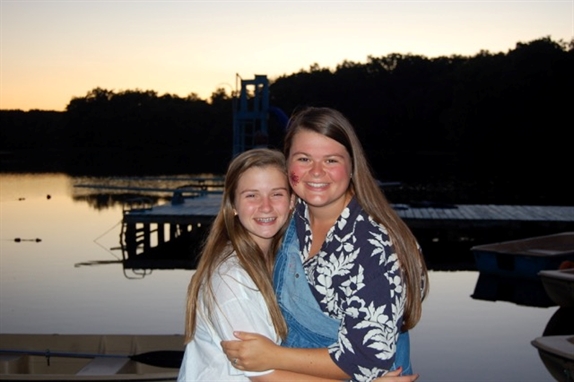
Maggie’s Thoughts on Devotions
Maggie's Thoughts on Devotions
• What the heck is “devotions?”
Devotions are simply activities that you plan for your cabin each night to help them wind down before going to bed. They can be very deep and filled with a lot of meaning, or something fun yet quiet that can get your bunkies’ calm before getting in their bunks!
• Why do we do devotions?
We do devotions so that each girl can talk about her day and be heard by their counselor and fellow bunkies. Each cabin has a different dynamic, and every camper has a different personality, so it is really easy for certain girls to be overlooked during their classes. If someone has a quiet voice and is easy-going, they might not get the chance to talk about their highs and lows of the day like someone who is outgoing and loud.
• How do I get the kids to calm down so I can do devotions?
It really depends on the age group, because younger girls are going to be more tired after a long day of activities than older girls, but I always make every girl sit in a circle and we wait for everyone to get quiet. There is always one girl who will notice me waiting for everyone to get quiet while holding paper and markers, a beach ball, or whatever we need for the devotion that night. If they don’t quiet down, I usually tell them that we won’t have enough time before lights out if they don’t listen, and that will usually make them calm down.
• Where do we gather together, how do we all be a part of it?
I like to have every girl sitting in a circle on the ground because that way you can see everyone and listen to everyone without skipping over anyone. They can bring pillows, blankets, whatever they want as long as it won’t be a distraction! If you go in a circle when having the girls answer, everyone gets a fair chance to speak, instead of the talkative ones taking over.
• What’s a good routine to set up?
I always love to start with highs and lows. Whether the girls are 10 or 15, I think that everyone should think about their day and what they liked and didn’t like. My rule is that you don’t always have to have a low, but you always have to have a high, even if it’s a favorite meal or something little like that. Once everyone (including yourself) has had a turn, you explain the devotion and start! Also make the rule from the beginning of camp that Devotions will be starting at second “blinks” NO EXCEPTIONS. You have to start at second blinks every night so they know to get back from brushing their teeth or else they will miss out.
• What are some problems you run into?
The biggest problem is probably getting your bunkies back to the cabin by second blinks because there isn’t a lot of time for them to get ready, but that’s when you have to be the facilitator. As a counselor you can always get ready for bed once lights are out, but it might be better to take a trip to Egypt as a cabin if it means that your girls will get their business done in a timely manner.
Another problem is getting them calmed down with enough time to actually do the devotion. There have been times when I might have to finish a devotion in two nights because the girls didn’t settle down with enough time before Taps came around. It’s a little bit disappointing to both you and your bunkies, but it teaches them that it’s important to make times for devotions and that it’s a special time that won’t be rushed.
Nighttime is bedtime, but it’s also time to get homesick. I had a bunkie who was so homesick every night that it was exhausting to try and get her into the circle, let alone get her to participate in the devotion for the night. That’s when you have to go into true counselor mode and advocate for the rest of your cabin. You have to give every bunkie equal attention, and even if someone is homesick you can’t give her a pass on devotions for a night because it will make devotions seem optional, which they are not.
• What if I don’t have anything planned? Do I need to plan?
YES you need a plan! It doesn’t take a long time to plan a devotion, but if you have them planned out for each week early in the summer, it will save you a lot of stress over last minute planning and sloppy devotions. ALWAYS ask experienced counselors for ideas because we have a million of them! After a long evening entertainment when everyone is charging Egypt to brush their teeth is already stressful as a counselor, so don’t add to that stress by trying to plan a devotion at the same time.
• What are some good devotion ideas? For younger girls? For older girls?
A lot of devotions work for every age, like the “toilet paper” devotion. You have a roll of TP and have every girl take as many pieces as they want (usually with a maximum of 10). After everyone has the sheets of toilet paper, they have to say a fact about themselves for every sheet they have. You can also change what they have to say, like what they like about their cabin, what goals they have for camp (big or small), or whatever you think will be fun for them!
For younger girls, it’s harder to get them to think deeper because they haven’t had to think that deeply in their lives, so the more surface level devotions are easier and more enjoyable for them. Reading a book of poems will always intrigue and satisfy them while getting them ready for sleep. Older girls also love reading books or poems, but when your bunkies have had a long day, reading to them will make them feel at home.
One of my favorite devotions as an older camper was the “color” devotion. You get different colored pieces of construction paper (one color for each girl in your cabin) and you ask what POSTIVE personality traits go with each color. Every girl gets to answer for each color, and you write the traits on each color. After you’ve matched the traits with the colors, you then look at the traits and match them to each person in your cabin. Not only will this make each bunkie feel unique and appreciated, but you can also use this for bunkie gifts! One of my counselors made us each a clipboard with our color, traits, and name on it and it was an awesome and personalized gift! I did this last year with one cabin and made them a cardboard letter (their first initial) painted their color with all of the traits written on the back.
There are SO MANY other devotions, so don’t be afraid to ask experienced counselors!
Also, group devotions and devotions with an older counselor are always fun for you and your bunkies!
When it comes to bonding with your cabin, just being in the cabin during downtime goes a long way. If you’re in on their inside jokes, it makes it a lot easier to develop friendships with them. Sometimes it might be easier to go to the CB and clear your head when you have an extra 20 minutes in the day, but your bunkies will definitely miss you if you spend all of your time there. Also it makes a difference to ask each girl individually about what she has been enjoying or not enjoying about camp and then follow up on it. Talk to the other counselors; ask them what they see in their classes, let them know if Susie Camper wants to do well in that class. Make time to talk to each girl as an individual so they can trust you as their counselor and friend.
